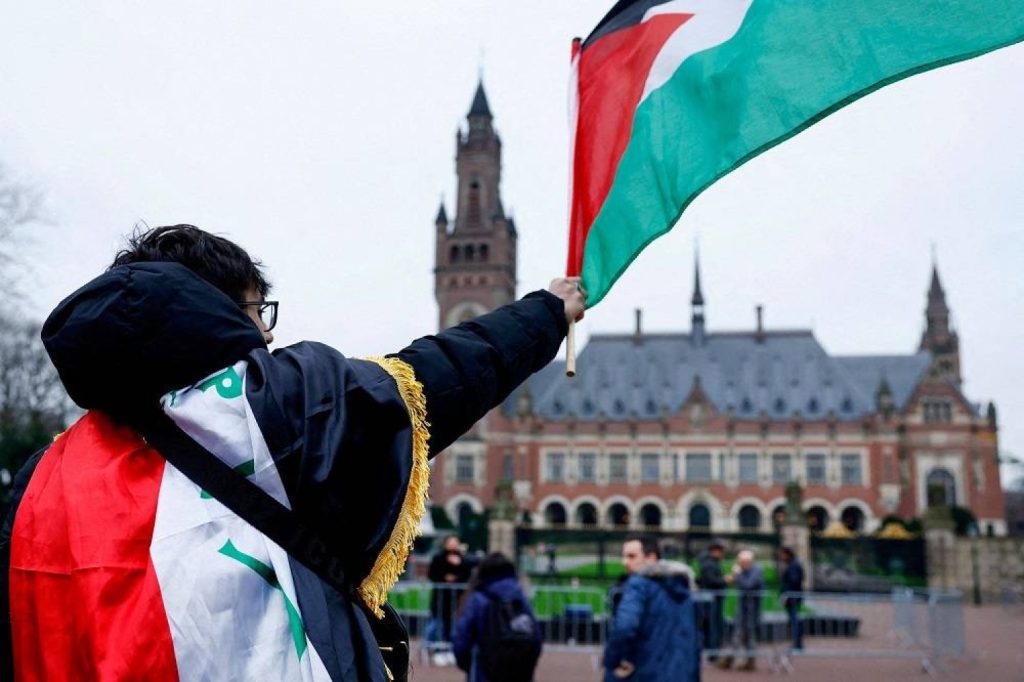








At the International Court of Justice, views from around the world were presented on the legal consequences of Israel’s policies in the Occupied Palestinian Territories.


Welcome back to Middle East Brief, where we take a look at the pivotal discussions unfolding at the International Court of Justice. This week, representatives from 52 nations and three major international organizations have come together to debate and provide their insights on the legal consequences of Israel’s policies in the Occupied Palestinian Territories, including East Jerusalem. This significant gathering has seen a broad spectrum of arguments, highlighting the global concern over the legitimacy of Israel’s occupation and its practices in these territories.
This week marked the culmination of oral statements delivered by representatives from 52 nations and three international organizations (namely, the Organization of Islamic Cooperation, Arab League, and African Union) at the International Court of Justice (ICJ). This pertained to the case seeking an advisory opinion in respect of the Legal Consequences arising from the Policies and Practice of Israel in the Occupied Palestinian Territories (OPT), including East Jerusalem.
Throughout the week, numerous states from diverse geographical regions articulated persuasive arguments highlighting the illegitimacy of Israeli policies within the OPT and advocating for an end to the occupation. Notably, the United States and the United Kingdom emerged as the primary proponents of Israel, diverging from the majority stance.
Over the course of the week, a discernible trend emerged indicating that both Israel and the United States are experiencing a growing sense of legal isolation, and to a significant degree, political isolation as well. This was evidenced in the statements recorded by numerous countries, including longstanding allies in Europe, as well as other traditional allies of the United States such as Japan. Notably, Japan exhibited a strong legal representation led by figures such as Dapo Akande, a widely recognized professor in international law at the University of Oxford. These nations openly criticized the legality of Israeli policies in the Occupied Palestinian Territories (OPT), underscoring the breadth of international condemnation for such actions.
An examination of countries sending representatives revealed that many Arab and Islamic nations opted for diplomats, including ambassadors to the Netherlands and permanent representatives to the UN, rather than legal experts, to advocate for Palestinian statehood and an end to Israeli occupation in the OPT. While their arguments were impassioned, few presented novel legal insights, indicating broader political motives. Countries like Malaysia, which dispatched its Foreign Minister as the highest-ranking representative, and where the Palestinian cause in a very emotive societal issue, aimed to address their domestic audience’s sentiments.
It is important to note, however, that not all “political statements” articulated by representatives of Arab and Islamic nations solely catered to domestic audiences; rather, many bore wider regional and international implications. Notably, statements made by influential Arab countries such as Saudi Arabia.
Noteworthy, in the statement delivered by the Saudi representative was the characterization of Israel’s actions as deliberately obstructive to a negotiated settlement, along with the assertion that Israeli policies and practices dispel any illusion of genuine commitment to meaningful peace negotiations, not only directly challenges the assertions made by representatives from the United States and the United Kingdom but also carries profound significance, due to Riyadh’s pivotal and consequential role in broader regional diplomacy aimed at facilitating a negotiated resolution between Israel and the Palestinians, alongside matters entwined with their own national interests.
Written By: GABRIEL RAMIREZ
Written By: DILARA SAHIN
Written By: DILRUBA YILMAZ
Written By: NILAY CELIK
Written By: ELDANIZ GUSSEINOV
Written By: JOSEF SCHOEFL
Written By: SELCAN BEDIRHANOGLU
Written By: FATIH CEYLAN
FA’s flagship evening newsletter guilding you through the most important world streis ofthe day. Delivered weekdays.